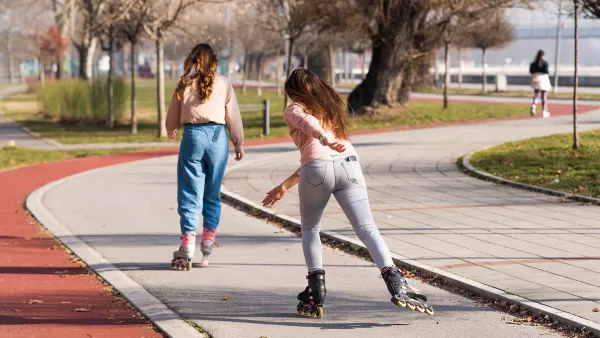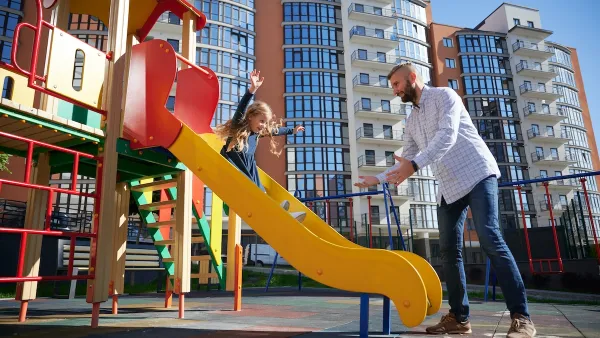Architect Richard Reep argues that farmer's markets in Orlando are creating public space in areas that have all but rejected the idea of common ground.
"We continue to evolve into a city that has troubled public spaces and increasing private spaces, much like the rest of the country. While the crime rate has risen suddenly in Central Florida, however, our public space, far from being doomed, is now hosting scenes of new civic involvement.
The age-old agora, contrary to reports of its death, is actually alive and well. Weekend markets are springing up in public nooks and crannies around the older, urban core, and in the suburban public parks as well. These markets are scenes of a new American involvement with each other, in a manner similar to the traditional European town square and the historical American village green. "Farmer's Markets," "Fresh Markets," and "Weekend Markets" are becoming popular not just in downtown Orlando, but in downtown Winter Park, Maitland, College Park, and surrounding communities. These markets are exciting because they are growing, despite all the forces working against them: crime, internet commerce, and the accelerated kinetic lives we lead in this new millennium. People are finding something important at these small, crowded, open-air market stalls, and it isn't just good tomatoes."
FULL STORY: Farmer’s Markets: Reviving Public Space in Central Florida

Planetizen Federal Action Tracker
A weekly monitor of how Trump’s orders and actions are impacting planners and planning in America.

Restaurant Patios Were a Pandemic Win — Why Were They so Hard to Keep?
Social distancing requirements and changes in travel patterns prompted cities to pilot new uses for street and sidewalk space. Then it got complicated.

Map: Where Senate Republicans Want to Sell Your Public Lands
For public land advocates, the Senate Republicans’ proposal to sell millions of acres of public land in the West is “the biggest fight of their careers.”

Maui's Vacation Rental Debate Turns Ugly
Verbal attacks, misinformation campaigns and fistfights plague a high-stakes debate to convert thousands of vacation rentals into long-term housing.

San Francisco Suspends Traffic Calming Amidst Record Deaths
Citing “a challenging fiscal landscape,” the city will cease the program on the heels of 42 traffic deaths, including 24 pedestrians.

California Homeless Arrests, Citations Spike After Ruling
An investigation reveals that anti-homeless actions increased up to 500% after Grants Pass v. Johnson — even in cities claiming no policy change.
Urban Design for Planners 1: Software Tools
This six-course series explores essential urban design concepts using open source software and equips planners with the tools they need to participate fully in the urban design process.
Planning for Universal Design
Learn the tools for implementing Universal Design in planning regulations.
Heyer Gruel & Associates PA
JM Goldson LLC
Custer County Colorado
City of Camden Redevelopment Agency
City of Astoria
Transportation Research & Education Center (TREC) at Portland State University
Camden Redevelopment Agency
City of Claremont
Municipality of Princeton (NJ)




























